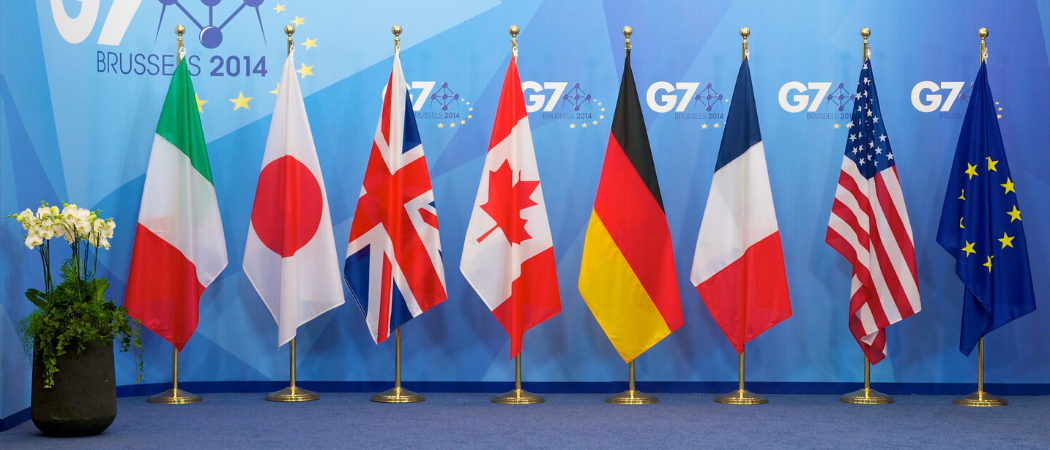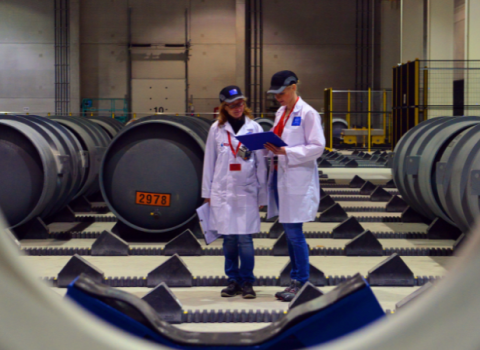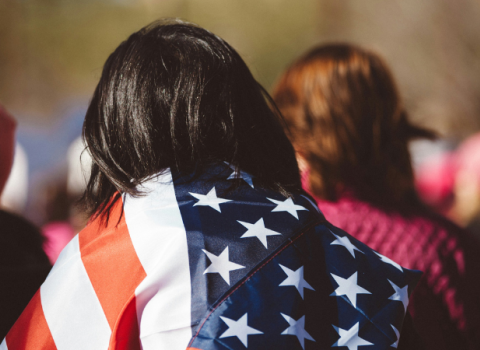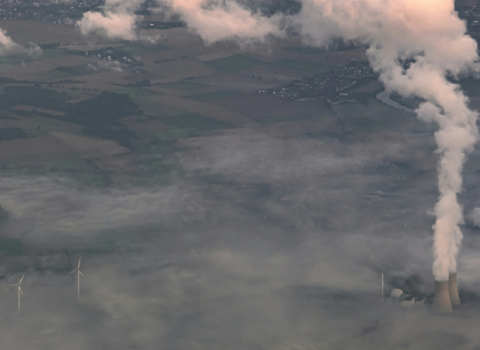Academic bodies say disarmament and understanding the risks of nuclear war are now top global scientific priorities, alongside issues such as artificial intelligence, health and social inequality

Photo credits: Herman Van Rompuy / Flickr
Science academies in G7 countries have told their governments to discuss nuclear arms control ahead of a summit in June, marking the first time the issue has been marked out as a scientific priority.
Each year, academies from the US, Canada, Japan, Germany, France, Italy and the UK set out the top scientific issues for their governments to discuss, in a kind of annual barometer of western countries’ research priorities.
Unsurprising, areas like health, agriculture and climate change normally feature in this rostrum of concerns, but this year, the academies have issued an unprecedented call for leaders to focus on nuclear arms control too.
“In the context of the current global instability, it is imperative to highlight the known consequences of nuclear warfare,” the academies say in a joint statement, which will be discussed at the G7 summit in Italy from 13-15 June.
The alarm follows Russian nuclear sabre rattling since it invaded Ukraine in 2022. In the autumn of that year, US intelligence estimated there was a 50:50 chance of Moscow using a smaller, so-called tactical nuclear battlefield weapon to halt a Ukrainian military advance, it was reported last month.
“New threats have been made to use tactical nuclear weapons,” the science academies say, which, aside from risking immediate damage, could escalate to full-blown global nuclear war.
While the threat to use tactical weapons never materialised and has since somewhat receded, the global nuclear picture has nonetheless become more dangerous. China is building up its own stock of warheads, and the US plans to overhaul its arsenal. Meanwhile, Iran, currently engaged in near open war with Israel, is thought to have edged closer to being able to build its own weapons.
“After a sustained period of declining numbers of nuclear warheads, there is a risk this trend could now reverse,” the academies warn. Despite these dangers, there are things scientists can do to reduce the risk. “Among the roles of the scientific community are to continue to develop and communicate the scientific evidence base that shows the catastrophic effects of nuclear warfare,” the academies say.
Consequences
In their statement, they list the gruesome consequences that scientists know would follow an attack: acute radiation sickness for survivors, long-term increased rates of cancer, possible “mass extinction” of species, and the injection of soot into the atmosphere, potentially causing a nuclear winter.
The extent to which a nuclear war would also cause a nuclear winter, starving the survivors and potentially causing even more casualties than the initial blasts, is still something of a scientific uncertainty.
“While there is uncertainty about how much soot reaches the stratosphere and how long it remains there, these effects could significantly reduce agricultural output and fish catch following a nuclear war, exacerbating food insecurity globally beyond the direct disruption from the war,” the academies say.
One other thing scientists can do is to “develop means to monitor, detect, and verify agreements” over nuclear weapons between states, they say.
In addition to nuclear war, the academies identify agriculture, artificial intelligence, cultural heritage, health and social inequalities as their top priorities for discussion at the June summit.
The group is made up of the Royal Society of Canada, France’s Académie des Sciences, the German National Academy of Sciences Leopoldina, Italy’s Accademia Nazionale dei Lincei, the Science Council of Japan, the UK’s Royal Society, and the US’s National Academy of Sciences.





 A unique international forum for public research organisations and companies to connect their external engagement with strategic interests around their R&D system.
A unique international forum for public research organisations and companies to connect their external engagement with strategic interests around their R&D system.